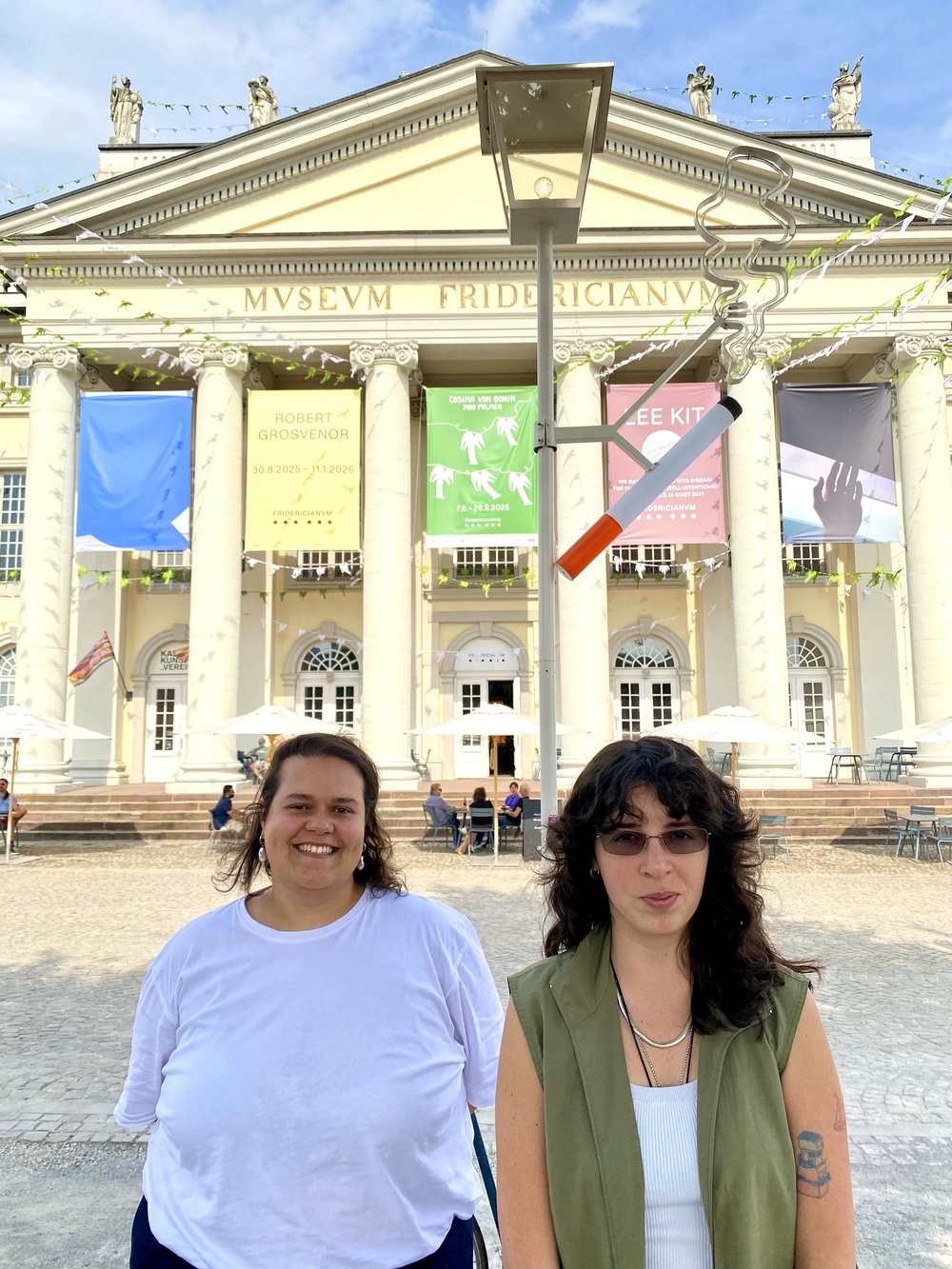Júlia Cavazzini and Dea Tcholokava: New Goethe Fellows at the documenta archive

Goethe Fellows 2025: Júlia Cavazzini and Dea Tcholokava, photo: Julius Lehmann
Once again this year, we welcome two Goethe Fellows to the documenta archiv: Júlia Cavazzini (São Paulo, Brazil) and Dea Tcholokava (Tbilisi, Georgia) will be joining the team in the coming months and pursuing their own transdisciplinary research questions during their stay.
Julia Cavazzini is an artist, curator, and mediator from São Paulo, Brazil. In her work, she explores the intersections between contemporary art and food, experimental pedagogy, and curating as artistic practice. As a Goethe Fellow at the documenta archiv, she is investigating the role of food and eating in the history of documenta and in artistic concepts. The focus is on food as an expression of hospitality, as a means of diplomatic communication, and as a social link in curatorial and artistic practices.
Her research project at the documenta archiv follows culinary traces in archival materials such as menus, correspondence, and merchandise—and uses food as an example to explore how the ephemeral can be documented, remembered, and interpreted. Inspired by her own experiences at previous editions and by key contributions such as Rasheed Araeen's "Shamiyaana–Food for Thought: Thought for Change" (documenta 14), Cildo Meireles' "Disappearing Element / Disappeared Element (Imminent Past)" (documenta 11), Ferran Adrià's molecular cuisine (documenta 12), and the artistic practices of lumbung, she considers food as a gateway to art and a mirror of social and curatorial developments.
During her research stay, she explores sensory and analytical questions: “How do art spaces deal with a medium that is defined by its own disappearance? How can food be used as a connecting element in art? What insights does documenta offer into a possible historiography of the crossover between art and cuisine? And perhaps most impressively: What would documenta taste like?”
Dea Tcholokava lives and works as a filmmaker in Tbilisi, Georgia. As part of her fellowship at the documenta archive, she is working on an essayistic documentary short film. The focus is on her personal experience of living in Germany, especially in Kassel, which she combines with materials from family archives, found footage, and public archive material from Georgia and Germany. She is also conducting research in the documenta archive on artistic positions and concepts relating to identity, belonging, and home.
Dea Tcholokava studied politics, social sciences, and film directing and collaborated with the media platform Chai Khana on several projects, including Traffic Diary and Of Kids and Sea, which were shown at international film festivals.
She has also worked as an editor and assistant director alongside renowned Georgian directors such as Lana Gogoberidze, Tato Kotetishvili, and Bakur Bakuradze. Her films have been screened on various platforms and at festivals such as DOK Leipzig and the East Doc Platform (Short Pitch). Her new short documentary What Does the Mud Whisper premiered at the Krakow Film Festival in 2025.
Her research covers, among other things, the film and photo sections of documenta 6 (1977), amateur films from the context of the exhibitions, and artistic practices on the theme of “migration experience.”
Some of the key questions she pursues in her archival and cinematic search for clues are: “How do (attributed) identities and the piece of earth on which we are born shape our thinking and our self-image? What does it mean to be born in a particular place? Is identity something that has simply been given to us, or perhaps even imposed on us? And is there any place at all to which one can truly feel a sense of belonging?”
